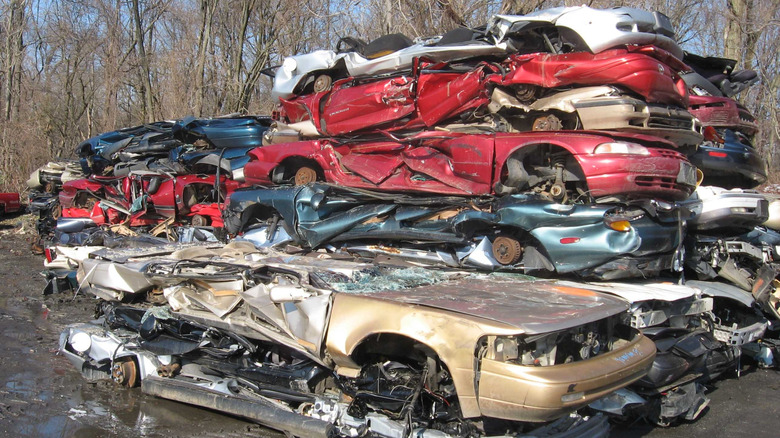
Cars can almost feel like another family member. Cars take us to key moments in our lives, ferry us back and forth to work, protect our families during long journeys. Heck, if the back seat was spacious
enough, some of us were even conceived in a car.
Sadly, nothing lasts forever, and most cars are ultimately destined for the scrapyard as their final destination. But if you're smart and know your way around your vehicle, your car can be of service, even as scrap. Cars are complex machines made up of hundreds of parts, many of which are quite valuable, even if the car itself is a jalopy.
Before dropping your car off at the junkyard and calling it a day, check and see if your car has individual parts that could be sold for cash, which could go into the purchase of your next car. Think about how good hunters are supposed to use every piece of the animal's corpse. Even in death, a good car has plenty of pieces that are worth money to pawn shops, junk dealers, and scrap collectors. These are 13 of the most valuable parts from your junk car.
Read more: 10 Used Cars You Can Safely Buy With Over 100,000 Miles
Hubcaps
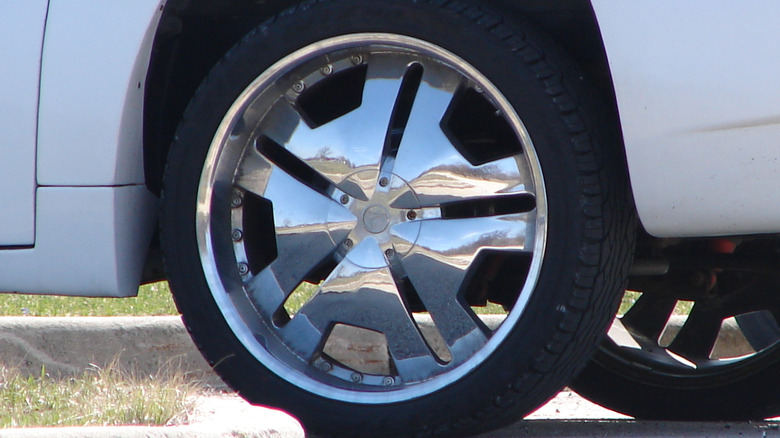
Watch any old gangster movie, and chances are, the criminal subject of the film got his start stealing hubcaps. It's the classic gateway crime. It's a quick and easy way to steal something and show the world that you're a "bad boy" with no respect for authority. That being said, juvenile delinquents don't steal hubcaps just for the fun of it. They do it to get some money in their pocket. But also for the fun of it. (SlashGear does not condone stealing hubcaps, no matter how fun or profitable it may or may not be)
These days, most hubcaps are made of plastic and aren't very valuable. But older cars had metal hubcaps that were just about worth their weight in scrap metal. They're not going to make you rich or anything, but if your car has metal hubcaps, be sure to sell them off before sending your old junker off to that great junkyard in the sky. They're easy to remove and scrap metal is always in demand somewhere or another... which is probably why they switched to cheap, plastic hubcaps in the first place.
Car Seats
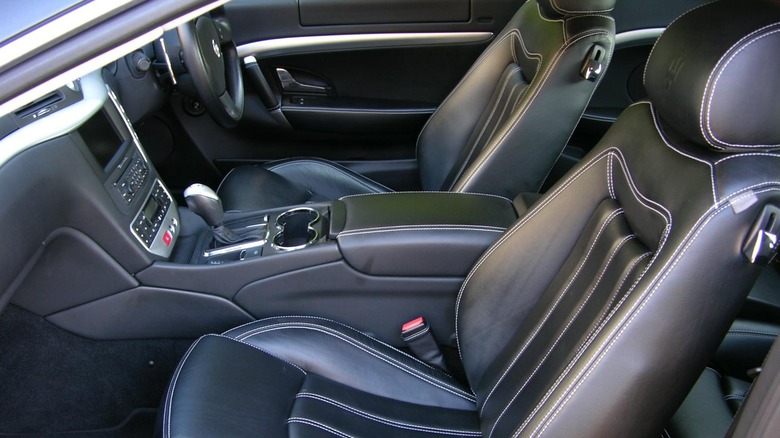
When we think of car parts that suffer from wear and tear, we think of under-the-hood components like the engine or undercarriage parts like catalytic converters and exhaust pipes, but one overlooked car component is the seat. Unless you're some kind of Cirque du Soleil enthusiast, whenever you're driving the car, you're sitting in the driver's seat. Likewise, passenger seats are always seeing action, either from human butts or grocery bags. Thus, there's always a market for automobile seat replacements.
You can get more than $25 or so for a car seat in reasonable condition, so the more seats you have, the more money you can earn. Though for a part like this, you might be better off finding someone who could benefit from your own used parts and go together to a mechanic who can swap the seats, cutting out the junkyard middleman entirely. However, if that's not an option, a junkyard will still have you ending the day with more cash in your pocket than when you woke up, and that's always a good thing.
Catalytic Converter
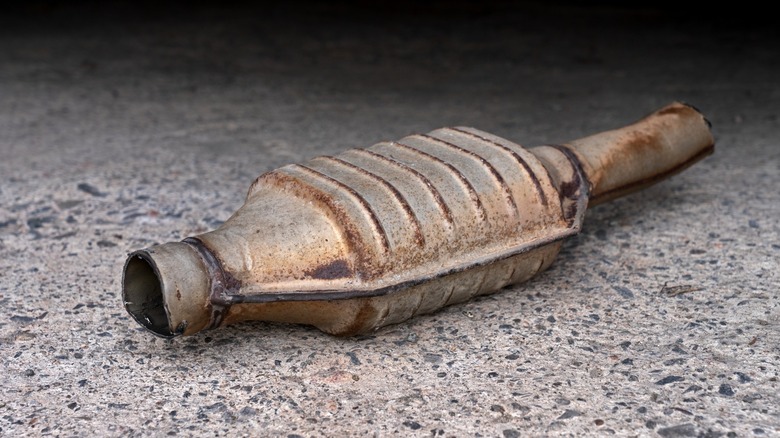
Catalytic converters were mandated in all American vehicles as part of the 1970s crackdown on unregulated harmful automobile emissions. This one part significantly improves the carbon footprint of any automobile to which it's attached. Getting into just how a catalytic converter works is beyond the scope of this story, but rest assured, it's a fancy piece of hardware, and if it's fancy, it's expensive.
Catalytic converters contain precious metals like platinum and palladium, which are worth more than gold. On an old, broken-down car, the catalytic converter alone could be worth more than the entire vehicle combined. When a car is at the end of its lifespan, selling off the catalytic converter can put a few hundred bucks in your pocket, or more if it's a particularly old model that contains more platinum and other rare metals. Catalytic converters are also a common target for thieves, so be careful where you park, especially if you're driving a vintage vehicle.
Windshield Wiper Arms
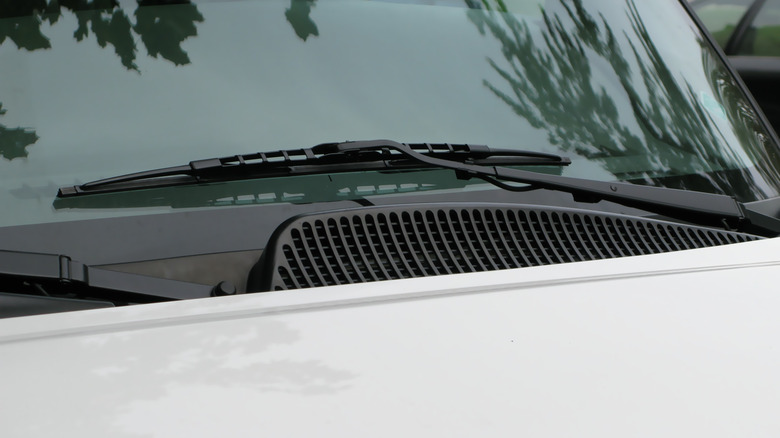
Every part of a scrapped car is worth something. Even something as seemingly insignificant as the windshield wiper arm can be worth a few bucks if it's in reasonably fresh condition. If you haven't changed windshield wiper blades in a while, it's probably not worth much more than garbage, but if they're specialized models that have suffered minimal wear and tear, you might be able to get a maximum of $65 for each one, but that's at the very high end. You're more likely to get less than $5 per arm on most models. Still, better than just throwing it in the trash, right?
Windshield wiper blades are something of a wildcard. They might be worth virtually nothing, or they might, surprisingly, be worth more than you thought. When selling parts to junkyards or pawn shops, it might be worth checking multiple outlets, like getting a second opinion from a doctor. Some buyers might not be aware of the true value of a particular item. Or, equally likely, they might try to maximize their profits by hoping you won't realize the value of your own junked car. That being said, don't be surprised if your junker isn't worth as much as you'd like. It's called "junk" for a reason.
Glass (Windows & Windshield)
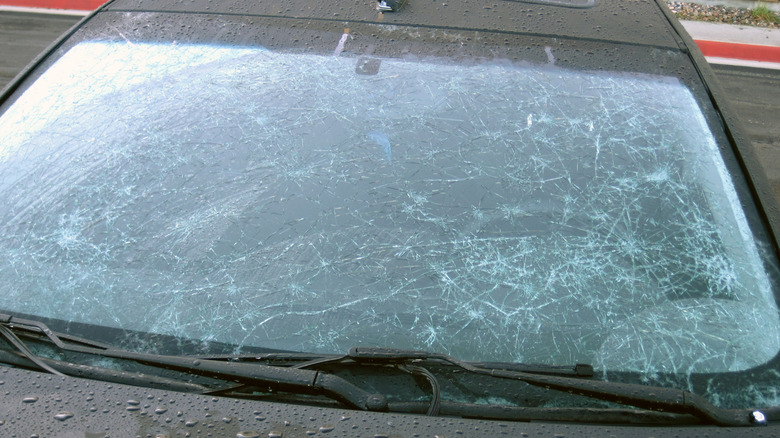
If you ding your bumper, it's annoying, but survivable. Even if you get sideswiped, you might lose some paint or get a nasty dent, but it won't destroy your vehicle. However, if a rock, chunk of ice, or other piece of debris cracks your windshield, now you're in real trouble. Driving with a significant windshield crack is illegal, so if your windshield suffers an injury, you have no choice but to get a new one.
New windows and windshields can be pretty expensive, running in the range of $300. However, buying a used windshield from a scrapyard might only cost $50 or so. And where does the scrapyard buy its used windshields? From your junk car, of course! Intact windows, windshields, and even dashboard infotainment screens are worth a few bucks as replacement parts for other vehicles, though it's possible that using a second-hand pane of glass could void your warranty if you're buying, not selling. If you're still under warranty and need a new windshield, check and see if you can get the manufacturer to replace it for you before looking into the secondhand market.
Airbags
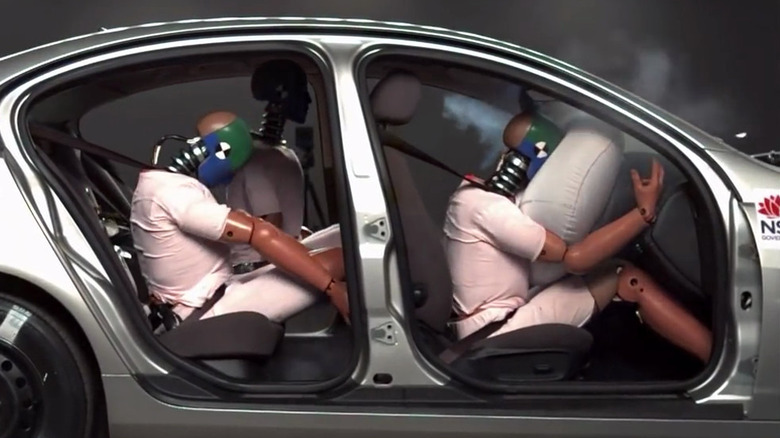
They say that "one man's trash is another man's treasure." Airbags are not reusable, so if the reason you're scrapping your car is because of an accident bad enough to trigger the airbag, it's a safe bet your used airbag will be nobody's treasure. However, if your airbag hasn't been deployed, it could be worth some money to the right buyer.
Before you go buying or selling airbags, however, check your local laws. Airbags are basically explosive balloons and can be extremely dangerous if installed improperly. In fact, Mazda had to recall many vehicles due to faulty airbags. In New York, for example, it's illegal to sell used airbags. When it comes to automobile safety, taking a risk on a potentially improperly installed airbag isn't worth saving a few bucks playing around on the secondhand market. Remember to always keep the law in mind, whether it's following the rules of the road or selling used airbags.
Engine
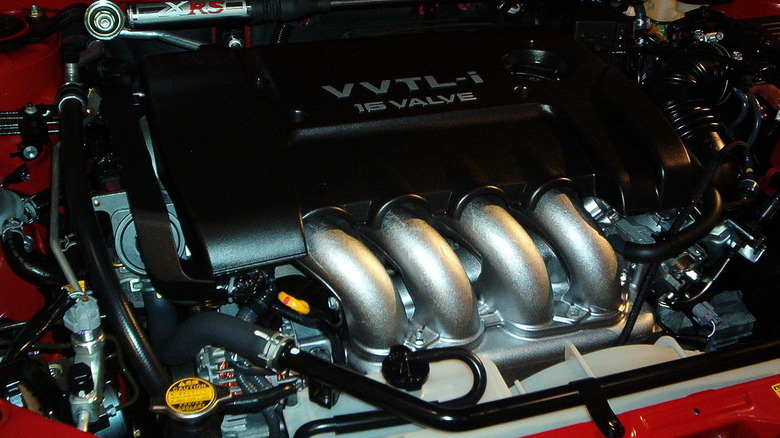
Just like how a human needs a heart, cars don't operate without an engine. Also like the heart, car engines are complex mechanisms that few people truly understand, metaphorically or otherwise. When it comes to scrapping your car, the engine is something of a tricky wildcard. On one hand, the engine is very valuable, but on the other hand, if you're scrapping your car, it's probably because the engine has run its course and has depreciated in value to the point where it's pretty much useless. However, just because something is useless, doesn't mean it's worthless.
If your engine can still spin, it's worth money to the right buyer, possibly to the tune of thousands of dollars, if the engine is fancy enough. Even if an engine seems totally busted, a truly skilled mechanic will be able to figure out which parts need to be repaired or replaced, as well as which parts can be salvaged to repair or replace other engines that have broken down. At worst, an engine can be scrapped for parts and spare scrap metal, just like the car itself. But if you have a little bit of technical know-how (or a friend who's a mechanic), you can polish up an engine to make it worth more to a prospective buyer.
Air Conditioner
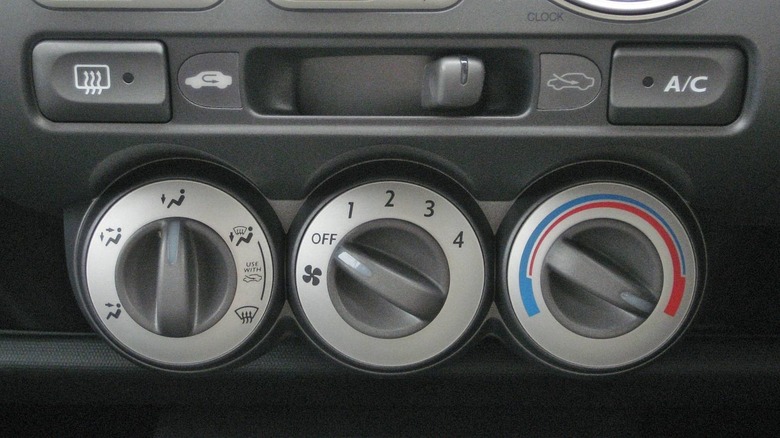
Air conditioning is an automobile feature we often take for granted. On a hot summer afternoon, with the sun beating down on leather seats, with not a hint of wind offering relief, you won't take air conditioning for granted, I promise. While technically a luxury, anybody who drives a car in a warm climate during the summer months can tell you: A/C is an absolute necessity.
A/C units consist of several components. If they're all in working condition, you can get upwards of $70 for the combined parts. A car's air conditioning parts are versatile and can be installed in other A/C units that aren't necessarily part of a car. However, fiddling with air conditioning systems can be dangerous (nobody wants a splash of toxic coolant to the face), so you might want to have a mechanic remove the air conditioning before bringing it to a junkyard or pawn shop to sell.
Battery
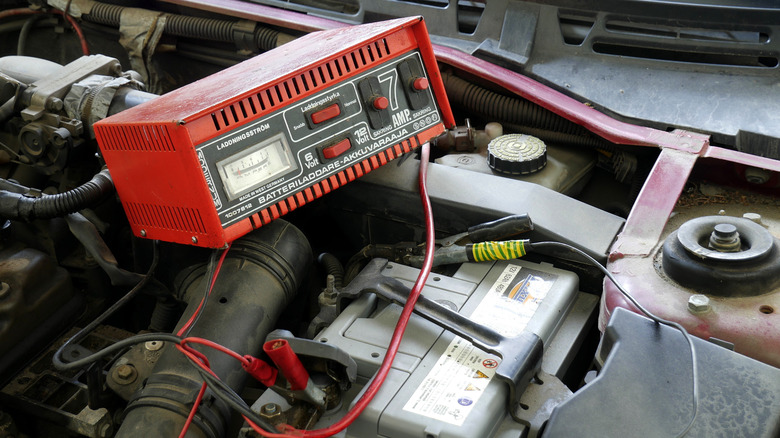
Every car needs a battery. Nobody likes being in the position of having to ask strangers for a jumpstart, and they don't like the jumper cables sending volts up their arms, either. Happily, when a car reaches the end of its life, the battery is one of a junker's many components that can be worth a healthy chunk of change.
Junk dealerships purchase batteries, generally not to be put into other cars, but for the valuable materials contained within the battery. We're talking about precious metals like nickel, cobalt, and lead. 70% of a battery is recyclable lead, and these materials can be quite valuable to the right buyer, to the tune of $15-$50 per battery, depending on its size, weight, and condition. That's not necessarily a ton of money, but if you happen to have old batteries sitting around in your garage, you're sitting on potentially hundreds of untapped dollars.
Tires
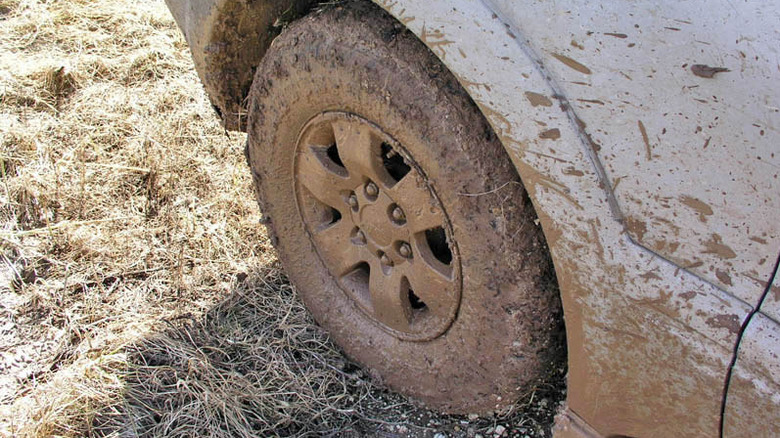
Hubcaps aren't worth much anymore, not since they switched from metal to plastic, but there's no substitute for the rubber on a tire, not to mention the steel of the wheel itself. If you take a look at the broken husks of junkyard scrapped cars, you'll notice something: none of the cars have wheels. That's because wheels, like most parts of a beater vehicle, are actually quite valuable.
While nobody wants to stick old, used tires on their new car, that doesn't make old tires worthless. Rubber can be scrapped just like metal, shredded and recycled into new tires or other rubber-based products. As for the steel wheels themselves, they can be scrapped for parts as well, with wheel weights and rims fetching a few bucks to the right buyer. If you're getting rid of the whole car, the tire axle itself is a solid piece of scrap metal that can fetch a few bucks from junk dealers.
Stereo System/Radio
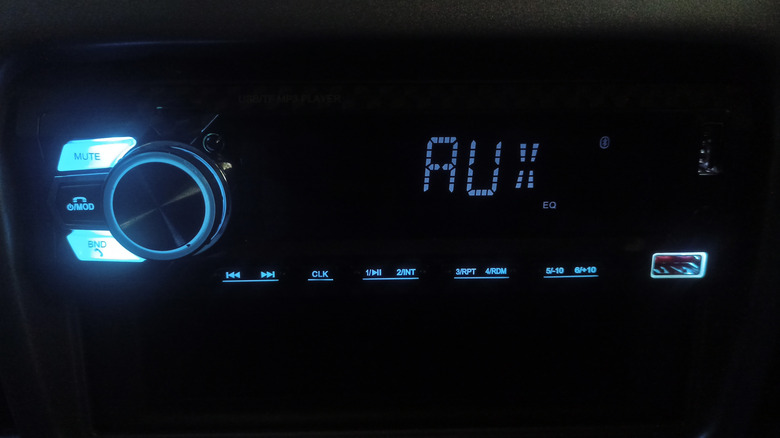
It's less common these days, but if you're someone who lives in a big city, getting your car stereo stolen is something of a rite of passage. It's kind of like the modern day equivalent of stealing hubcaps, if a little tougher for thieves because they'll have to actually break into the car first. Still, if something is popular among thieves, it's also popular among buyers of used car parts. Back in the old days, car radios were popular targets for thieves, but in more recent years, as high-quality sound systems have become standard, so too have anti-theft measures to protect them from fiendish rascals.
Pawn shops and junkyards may buy your old car radio/stereo system. While it might not be applicable on today's cars with their fancy infotainment systems, not every driver wants or needs a full-on computer in their dashboard. Drivers who prefer old-school automobiles will still need a car stereo. As long as vintage cars remain popular (and believe us, they will always be popular), there will always be a market for old car stereos. You might not get more than a few bucks for it, but that's more than you'll get for tossing it in the garbage, at least.
Infotainment System
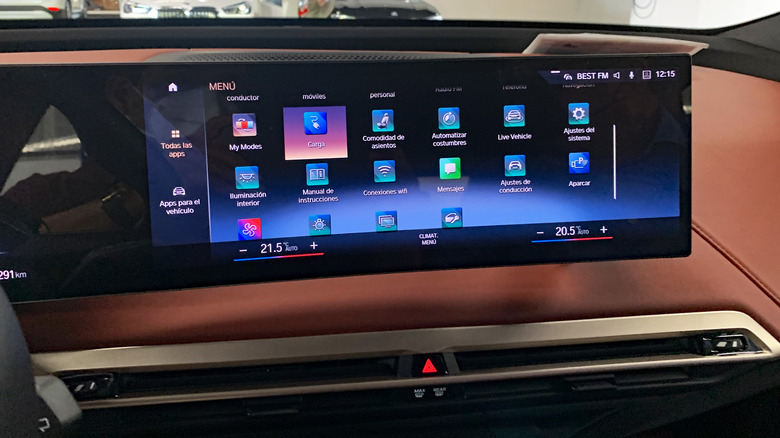
In the old days, car radios were the pinnacle of in-car entertainment technology. These days, cars have much fancier infotainment systems that combine GPS, parking cameras, and other apps that monitor your car's condition, in addition to good old-fashioned AM/FM radio.
When scrapping your car, it's important to wipe your data from the infotainment system by manually deleting GPS history and user accounts in addition to performing a factory reset. That way, if an unsavory type ends up with your car computer sometime down the line, they can't hack your personal information or follow in your footsteps for any number of nefarious purposes.
Most savvy junkyards will take infotainment systems off your hands and leave you with a nice chunk of cash in return. In the used car market, it's potentially more cost-effective to buy a car and an infotainment system separately. Additionally, if you've recently upgraded to a car with an infotainment system, you may have had an external GPS device. That can also be sold to a pawn shop for a few dollars. Again, make sure to wipe your data from the device so prospective ne'er-do-wells don't get any devilish ideas.
Scrap Metal
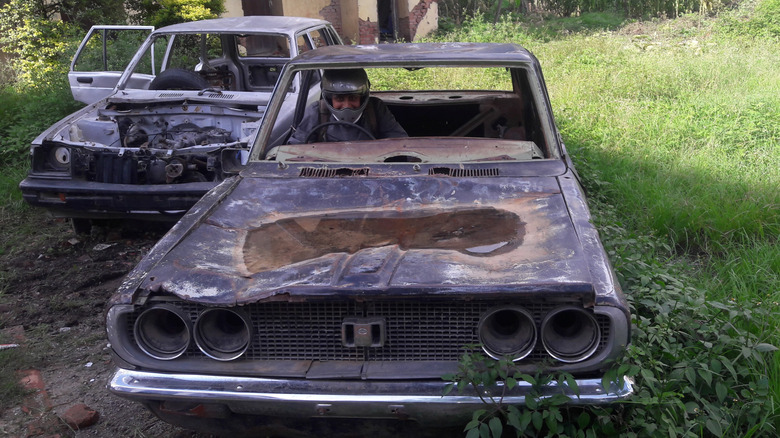
At the end of the day, there's no part of your car that isn't valuable in some way. That's why junkyards exist. If you see a car at a city dump, even one that's completely stripped of its more immediately valuable parts like the ones listed above, what you see is still a hunk of perfectly good scrap metal. Steel doesn't grow on trees, and will always be needed, if not to make new cars, then to make any number of other metal products.
Even after you've completely stripped your car and sold off every last window, bumper, seat, and ounce of windshield wiper fluid, the bare chassis can still earn you a few bucks if you can tow it to a junkyard. Any scrapyard worth its salt has connections with buyers of scrap metal, a highly recyclable substance that can last for multiple generations as long as the rust doesn't get to it. Think of it like the circle of life: cars are made of scrap metal from other cars, and when the car is retired, it gets turned into scrap metal to build a new generation of cars.
Want the latest in tech and auto trends? Subscribe to our free newsletter for the latest headlines, expert guides, and how-to tips, one email at a time.
Read the original article on SlashGear.












